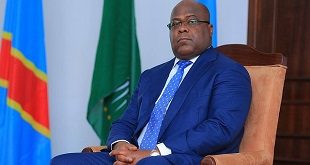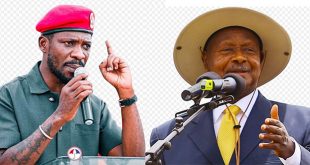After independence; especially in the 1970s and 80s, African nations were hostile to liberal economics and politics. So they nationalised private enterprises, confiscated private property, and created and/or expanded public monopolies. They put in place price controls for foreign exchange, cash crops and other goods like sugar and salt. And they established one party or military governments. These economic policies led to economic decay, sparking off political demands for reform of the economy and politics. The wave of democratisation in the 1990s was a political response to economic failure.
When, across most of Africa, governments began rolling back the state, many analysts attributed this to pressure from international financial institutions especially the International Monetary Fund and World Bank. But this is not entirely true. It is only true in the sense that the voice of the IMF and World Bank was louder because they controlled money. Governments in Africa that went seeking for money from international lenders did so in order to stave offpolitical threats emanating from economic failure at home.
We must remember that after independence, the state in Africa got overdeveloped in function, yet it was under developed in capacity. Hence its reach was far beyond its grasp. So attempts to control prices of export commodities pushed Africa’s traders from the legal to the illegal markets – so they smuggled these goods across poorly policed frontiers. Attempts to control foreign exchange led inevitably to the black market – across Africa, 80% of foreign exchange transactions took place on the black market.
One reason why Africa’s traders did not enter open resistance to the state given its destructive economic policies was because its weaknesses created room for evading and avoiding its reach. But such avoidance of the state was a second best option. So it undermined the efficiency of markets to allocate. Here is my point: IMF and World Bank sponsored reforms did not liberalise many markets in Africa. They simply legalised the black market.
Therefore, what we are seeing in Africa is economic failure begetting a political crisis, which has led not only to economic reform towards liberal economics but has also promoted reform towards liberal politics. In 1975, only three out of 46 presidents in Sub Sahara Africa were in office after an election where they faced a rival backed by an opposition political party. In 2015, they are 47 out of 48 nations.
In 1975, there were only 24 nations with anything similar to a parliament. Now all nations of SS Africa have parliaments. Across our vast continent, mass media have been privatised and liberalised and social media has spread via the mobile phone. Of course most of this reflects the breadth and not the depth of the liberal ideal. But these developments reflect the growth of liberalism. And let us remember liberalism is an evolutionary, not a revolutionary ideal.
****
 The Independent Uganda: You get the Truth we Pay the Price
The Independent Uganda: You get the Truth we Pay the Price



1.The article is just okay.
2. The beauty with liberation of the social,political and economic sector iis that one can make a fair assessment of the performance of a state before and after reforms happened.
3.Many tragedies have occurred coz of the liberation of the social,religious,political and economic sectors in Africa:Has the liberation of these sectors benefited Africa and parts of the 3rd world yes and no e.g religious freedom especially in the Arab states is a total disaster that the world has never witnessed.Economical liberation in Africa has left the poor and their leaders in a state of confusion Lawyers draft business policies and clauses that dont favour their own country somehow coz Africans dont love reading,their govts are forced to sign business deals that are not favorable to the nation and Politically Africa has failed to manage elections coz losing one is a sign of weakness.
The old man of the clan is surely wearing out. Now that he has started to quote himself,like one Adhola who used to roam in this forum, we might sooner than later see a wind-up. Even the best dancers leave the floor.
It is Winnie who might be left with the visionary when others have hung their boots or is it gloves?
@ Rajab the Ekyapaa Mu Ngalo man: Some schools of thought believe that the land in Kayunga genuinely belongs to the people of west Nile coz during the religious war between xians (lugard)and Muslims in 1889, Muwanga hired his Nubian commandos probably they were rewarded with that land.
@Adhola hope u r still alive and kicking have you seen the mess Britain is heading for?This is coz of democracy i already told you that not every one should have a say when govts are making critical decisions and recommendations.Poor Therasa May has been in power for just 6 months but it looks like every one is blaming her for all the misfortunes that have befallen Britain like the terror attacks,London Tower fire and the Brexit embarrassment(In this era of globolization why would Britain want to be aloner?).
The Elections in Britain is a eye opener to all nations.Citizens put their leaders under alot pressure to perform e.g the referendum that led to Briteix :the British have discovered that they blundered so they are playing safe by blaming Ms May and not Boris Johnson for confusing them;Politics is not science where there must be a new innovation to register success.
@ Rwasubutare: How does one who is selected to make a presentation be wearing out?Do you know how much people pay to have Andrew present a paper?organizers of conferences are kept on their toes when they host great people like Andrew 1st of all they ensure that he travels 1st class and resides in a 1st class hotel .You and Kant should one day be made rapporteurs in conferences so that you get an idea of what transpires there.
Dear Andrew, by your example of privatisation as a means or sign of liberalisation , you shoot yourself in the foot. Privatisation in Africa was largely a dictate from IMF and world bank and not a steady progress as you insinuate. I do not agree that privatisation and liberalisation are synonymus.
Please read extract below from another source.
Much of the initial impetus for privatisation in Africa came from creditor institutions, as part of their push for structural adjustment. By 1998, some 34 African countries had World Bank project or programme financing agreements that included privatisations and three-quarters of World Bank loans or credits were conditional, in part, on privatising state enterprises.
Such conditions have provoked resentment from African governments and fed a popular public view that privatisation is basically creditor-driven, or a form of “recolonisation
Afro optimist all the way